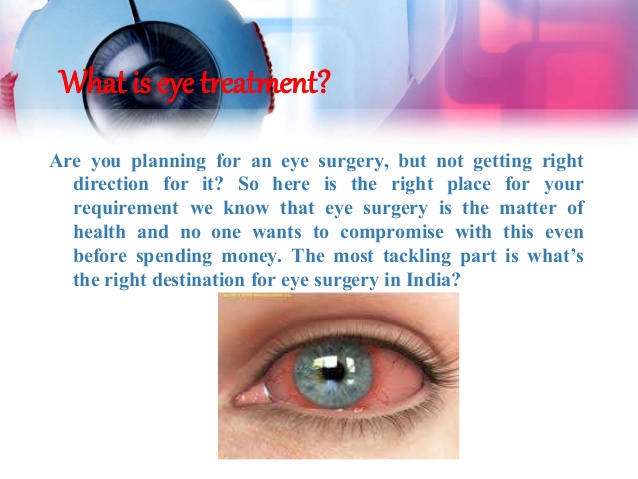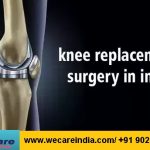Photorefractive keratotomy, or PRK, is a type of laser eye surgery used to correct mild to moderate nearsightedness, farsightedness, and/or astigmatism.

All laser vision correction surgeries work by reshaping the cornea, or clear front part of the eye, so that light traveling through it is properly focused onto the retina located in the back of the eye. There are a number of different surgical techniques used to reshape the cornea. During PRK, an eye surgeon uses a laser to reshape the cornea. This laser, which delivers a cool pulsing beam of ultraviolet light, is used on the surface of the cornea, not underneath a flap on the cornea, as in LASIK.
What are the advantages of PRK?
PRK is highly accurate in correcting many cases of nearsightedness. Approximately 90% of PRK patients have 20/20 vision without glasses or contact lenses one year after the surgery; 95%-98% have 20/40 or better without glasses or contacts.
PRK is thought to leave the cornea stronger after surgery. It is preferable to LASIK in cases of thin corneal thickness or with patients who desire to pursue boxing as a recreational activity.
What are the disadvantages of PRK?
Disadvantages of PRK include:
- Mild discomfort, including minor eye irritation and watering, for 1 to 3 days following the procedure.
- It is expensive, typically costing as much as LASIK (around $2,500 per eye).
- The outcome is not completely predictable and some patients may still require glasses.
When both eyes are treated, some patients should be cautioned to consider taking off from work for approximately one week, during which time the eye irritation and vision improve to a more acceptable level.
What are the potential side effects of PRK?
Many PRK patients experience some discomfort in the first 24 to 48 hours after surgery, and almost all experience sensitivity to light. Within the first six months after surgery, other potential side effects may include:
- Loss of best vision achieved with glasses
- Seeing a minor glare. This can be permanent, depending on a patient’s pupil size in dim light.
- Mild halos around images
Other potential side effects include delayed surface healing or mild corneal haze or irregularity that could affect the best vision achieved with glasses. Usually, the quality of vision long-term is as good as, if not better, than that achieved with LASIK.
How do I prepare for PRK surgery?
Before your PRK surgery, you will meet with a doctor and a coordinator who will discuss with you what you should expect during and after the surgery. During this session, your medical history will be evaluated, and you will have your eyes tested. Likely tests will include measuring corneal thickness, refraction, and pupil dilation. Your surgeon will answer any further questions you may have. Afterwards, you can schedule an appointment for the PRK procedure.
If you wear rigid gas permeable contact lenses, you should not wear them starting three weeks before the date of your surgery. Other types of contact lenses shouldn’t be worn for at least three days prior to surgery. Be sure to bring your glasses so your prescription can be reviewed.
On the day of your surgery, eat a light meal before coming and take all of your prescribed medications. Do not wear eye makeup or have any bulky accessories in your hair that will interfere with positioning your head under the laser. If you are not feeling well that morning, call the doctor’s office to determine whether the procedure needs to be postponed.

What happens during the PRK procedure?
The PRK procedure is done under local anesthesia and takes a maximum of about 10 minutes to do both eyes. During PRK, an eye surgeon uses a laser to reshape the cornea. This laser, which delivers a cool pulsing beam of ultraviolet light, is used on the surface of the cornea, not underneath the cornea as in LASIK.
What should I expect after PRK surgery?
Most of the time, a bandage contact lens will be applied immediately after the procedure. This contact lens is usually worn for the first 3 to 4 days to allow the surface of the eye to heal. You should expect to visit your eye doctor at least a few times during the first 6 months after surgery, with the first visit being 1-3 days after surgery. Once the surface of the eye is healed, the bandage contact lens is removed.
Your vision may fluctuate between clear and blurry for the first few weeks following surgery and you may need to wear glasses for night driving or reading until your vision stabilizes. Your eyes will be dry even though they do not feel that way. Your doctor will give you prescription eye drops to prevent infection and keep your eyes moist. These drops may cause a slight burn or momentary blurring of your vision upon using them. Do not use any drops not approved by your ophthalmologist.
Your vision will gradually improve, and usually will be good enough to allow you to drive a car within two to three weeks following surgery. Keep in mind, however, that your best vision may not be obtained for up to 6 weeks to 6 months following surgery.
Will I still need reading glasses to correct presbyopia after I have had PRK?
Presbyopia happens in all patients over the age of 40 and can be corrected with reading glasses or with laser refractive surgery doing something called monovision, where, using contact lenses, the non-dominant eye is corrected for reading and the dominant eye is corrected for distance. PRK is not used to correct presbyopia.









